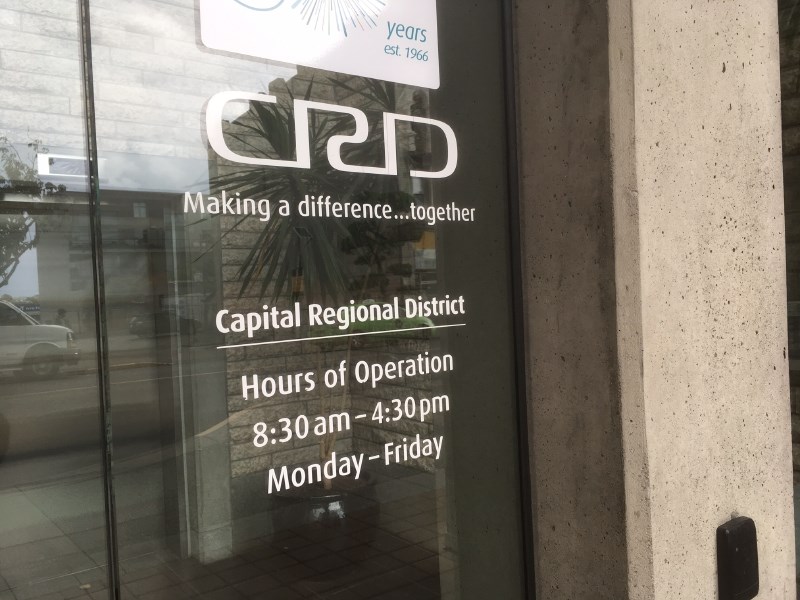Capital Regional District directors could be getting a raise next year to offset losses from pending federal tax changes.
Members of the CRD’s finance committee are recommending the board approve an increase to director remuneration of 14 per cent to offset federal tax changes that kick in next year.
Those federal changes eliminate the tax-free allowance for non-accountable expenses that has traditionally formed part of elected local government officials’ compensation.
View Royal Mayor David Screech called the proposed stipend increase “an exceptional circumstance” and noted that without it directors would be earning “considerably less” with the loss of the tax-free expense allowance.
“I think to me it makes perfect sense and I would hope that the public would understand that at the very least we should be on a level playing field and this is what that does,” Screech said.
Victoria Mayor Lisa Helps said by approving the increase now, before the October election, directors avoid having to vote on increasing their own salaries.
“Then the new board, their pay will be determined by the old board and I think that’s fair, as it’s more prudent,” she said.
Staff noted that the one-time boost, effective Jan. 1, if approved by the board, might put CRD director salaries out of sync with comparable organizations, which under board policy are used to help set director compensation. They said directors could wait to see what other local governments do before making an adjustment.
“We have no idea what other councils are going to do in the ensuing months and I think leaving it is not the right way to go,” Screech said.
Directors in 2015 voted to give themselves a pay hike, increasing the base pay for the board’s 24 members to $17,000 a year from $8,940.
The board chairperson was given an additional stipend of $25,000 a year, up from $20,000, for a total of $42,000. The raises — the first in 20 years — took effect Jan. 1, 2016.
Under a policy adopted in 2016, directors’ remuneration is adjusted annually based on cost of living and reviewed every three to five years to make sure it remains competitive with similar elected bodies. Directors received a 1.93 per cent cost of living adjustment this year.
With adjustments, a director’s remuneration has grown to $17,632 while the total for the board chair is $43,563. Staff are undertaking a review of what similar organizations pay.
Electoral area directors, who serve as the de facto mayor and council for their unincorporated areas, are paid $32,796 in salary and tax-free allowance. They decided last month to have their remuneration adjusted next year to offset the elimination of the tax exemptions.
Director remuneration includes a base annual stipend that recognizes attendance at all board meetings and committee of the whole meetings plus two standing committees.
An additional stipend is provided to directors who are involved in more than two standing committees.



